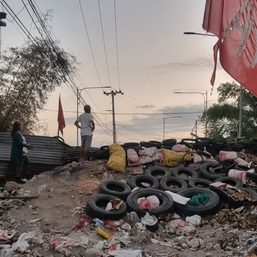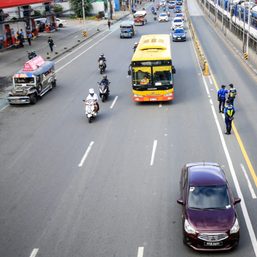SUMMARY
This is AI generated summarization, which may have errors. For context, always refer to the full article.
A proposed measure at the Senate seeks stronger action against human trafficking aided by the internet, particularly child trafficking.
Senate Bill No. 1794, filed by Senator Sherwin Gatchalian, authorizes court-sanctioned surveillance of online activities to prevent or intercept child trafficking. It enlists the help of internet service providers (ISPs) and tourism establishments in curbing child trafficking and other forms of human trafficking.
If passed into law, the bill would amend the Expanded Anti-Trafficking in Persons Act of 2012. Senate Bill No. 1794 was filed on August 26, and was pending at the committee level as of September 1.
“Unscrupulous individuals use new methods and tools via the internet to perpetuate their criminal acts, especially on women and children,” Gatchalian said in a statement on Monday, September 7.
The Department of Justice (DOJ) Office of Cybercrime reported a 264% increase in cases of online sexual exploitation of children (OSEC) in the National Capital Region from March 1 to May 24 – when the metropolis was on lockdown because of the COVID-19 pandemic. The agency recorded 279,166 OSEC cases during the period – far higher than the 76,561 cases in the same period in 2019.
Under the proposed amendments to the anti-human trafficking law, regional trial courts may issue written orders allowing law enforcers to conduct surveillance and record communications involving persons charged with or suspected of trafficking.
To justify surveillance, law enforcers must be able to establish that a crime of trafficking has been committed, is being plotted, or is taking place. The proposed measure punishes surveillance without a court order with 12 years’ imprisonment.
The bill requires ISPs to deploy current technologies to “block or filter” any form of child pornography. They must notify law enforcement of instances of child pornography committed using their servers or facilities, and may be authorized to yield information on the users involved.
Tourism-oriented establishments must report to law enforcement instances of child trafficking, child pornography, or sexual exploitation of children committed in their premises. The bill requires these establishments to train their staff in recognizing signs of human trafficking, and reporting them to authorities.
The Inter-Agency Council Against Trafficking (IACAT) is tasked with preparing a curriculum for such training, which it would make available for download on its website.
The bill would also reorganize the IACAT to include the following agencies:
- National Bureau of Investigation
- Department of Health
- Department of Information and Communications Technology
- Department of Transportation
- Overseas Workers Welfare Administration
The IACAT is currently led by the DOJ with the Department of Social Welfare and Development as co-chair. It includes the Department of Labor and Employment, the Department of Foreign Affairs, the Philippine National Police, the Bureau of Immigration, and several other government agencies and non-governmental organizations.
IACAT data cited by Gatchalian stated that 96% of 560 human trafficking convictions in the country from 2005 to June 2020 were related to sex trafficking. Of 1,256 victims, 57% were minors, of whom 1,175 were females and 81 were males. – Rappler.com
Add a comment
How does this make you feel?

![[Free to Disagree] Arrest Quiboloy!](https://www.rappler.com/tachyon/2024/03/Free-to-disagree-arrest-quiboloy-March-11-2024-1.jpg?resize=257%2C257&crop_strategy=attention)
![[EDITORIAL] Kalaban mo ang mga senador na protektor ni Quiboloy](https://www.rappler.com/tachyon/2024/03/animated-quiboloy-kojc-senate-carousel.jpg?resize=257%2C257&crop=365px%2C0px%2C720px%2C720px)







There are no comments yet. Add your comment to start the conversation.